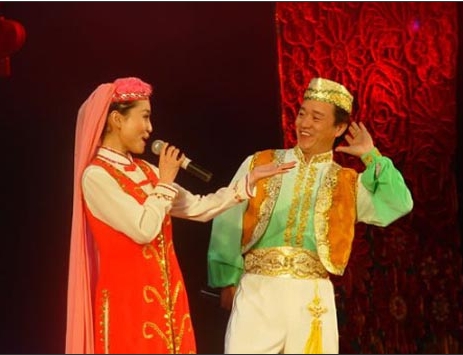
Also known as "Yequ" (wild tune) or "Shaonian" (youth), Hua'er is a kind of folk song in local Chinese dialects only sung outside the villages. It is widely popular in the eight minorities including Hui, Han, Tu, Dongxiang, Bao'an, Sala, Tibetan and Yugu of four provinces - Gansu, Qinghai, Ningxia and Xinjiang.
Hua'er is usually sung on two major occasions – "hua'er gatherings" and daily life and production. A "hua'er gathering" is a large-scale folk song gathering, otherwise known as "changshan" (singing mountain songs). The tune of hua'er is called "ling" (a pattern to which the tune is set), which varies according to the inserted words for balance or euphony in the course of singing. The lyrics of hua'er can't be quantified, but there are thousands of widespread pieces with set lyrics, and countless improvised pieces.
Hua'er, with striking literary and musical features, is a bold and unconstrained mountain song, bearing some flavor of smooth and graceful ditties. Hua'er is a sonorous, sprightly and passionate tune with true feelings and rustic charm. It's no wonder that it had enjoyed great reputation way back in the Qianlong Period of the Qing Dynasty.




